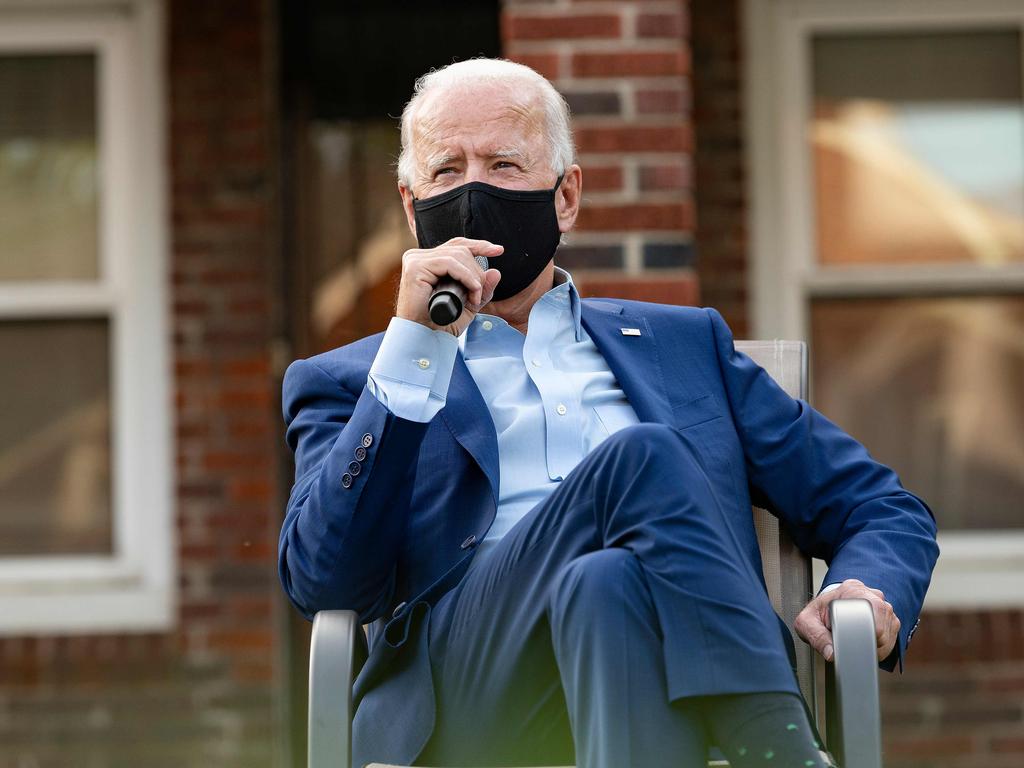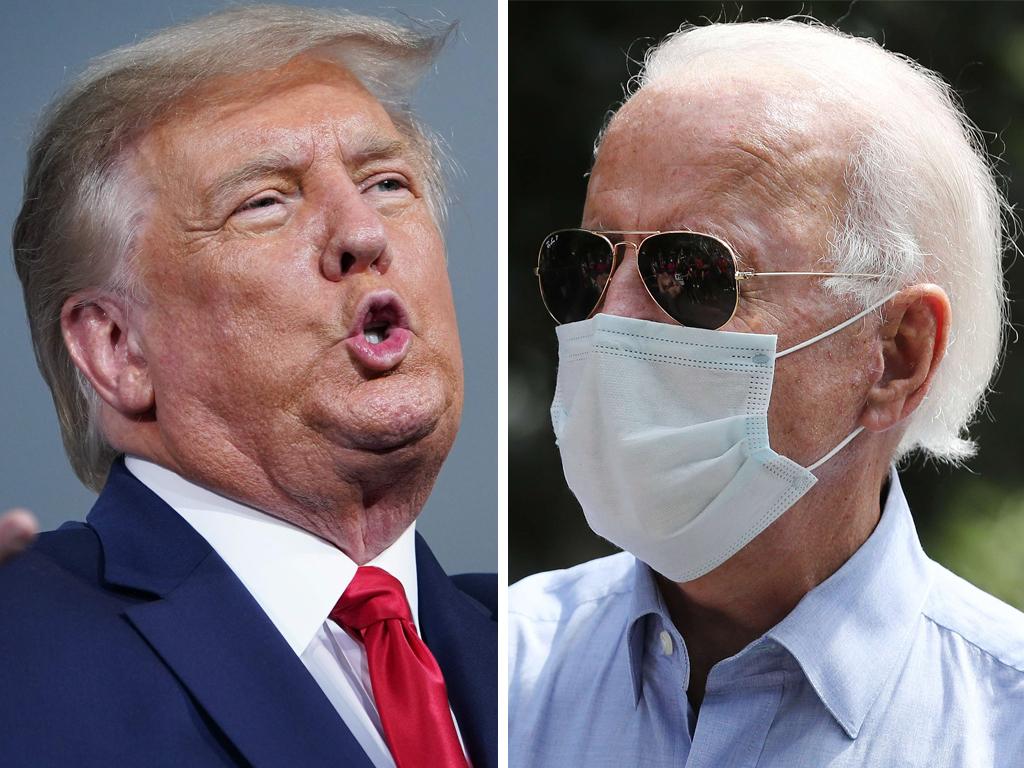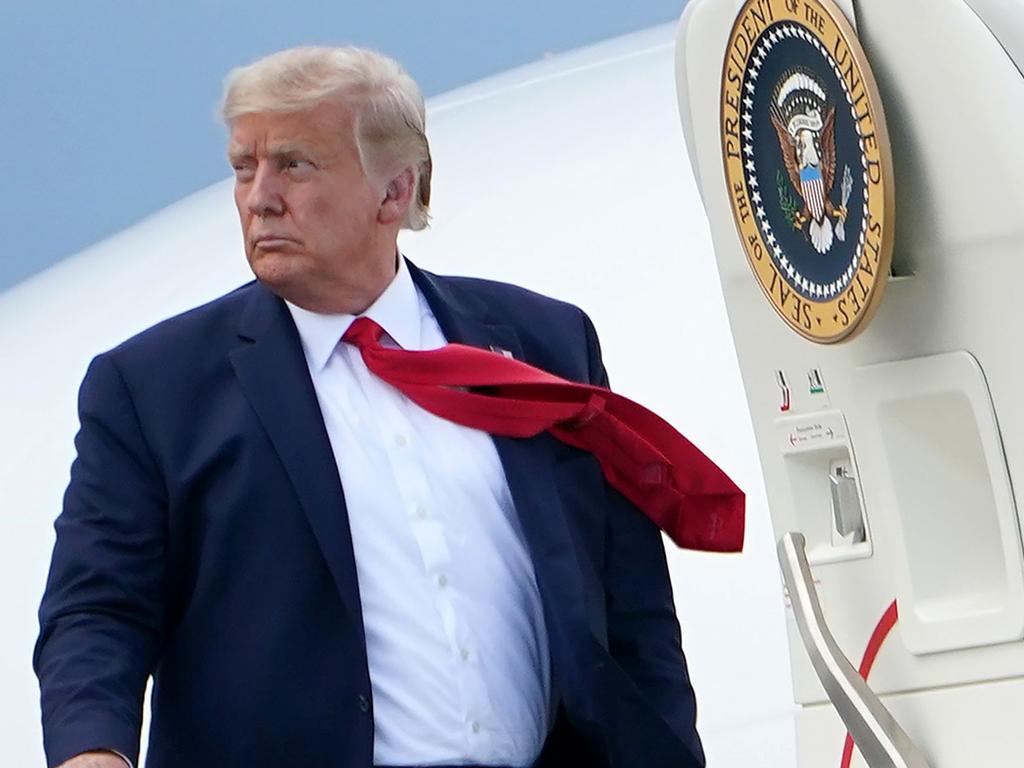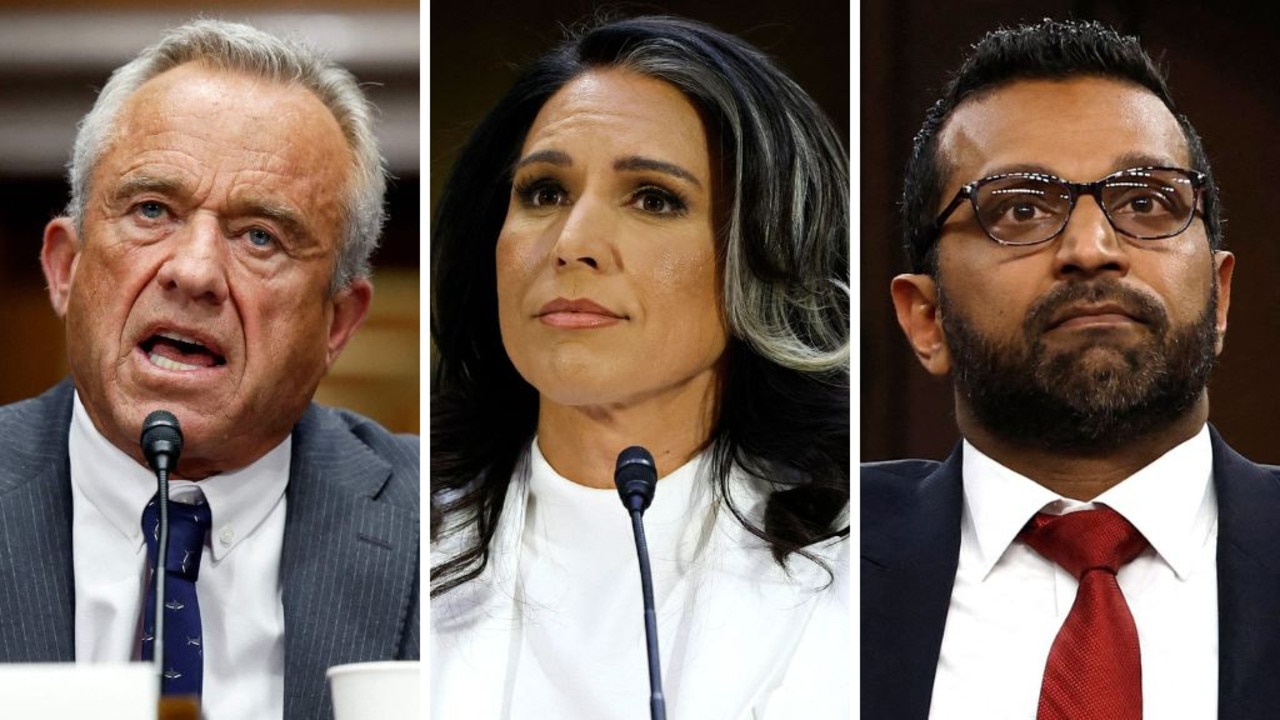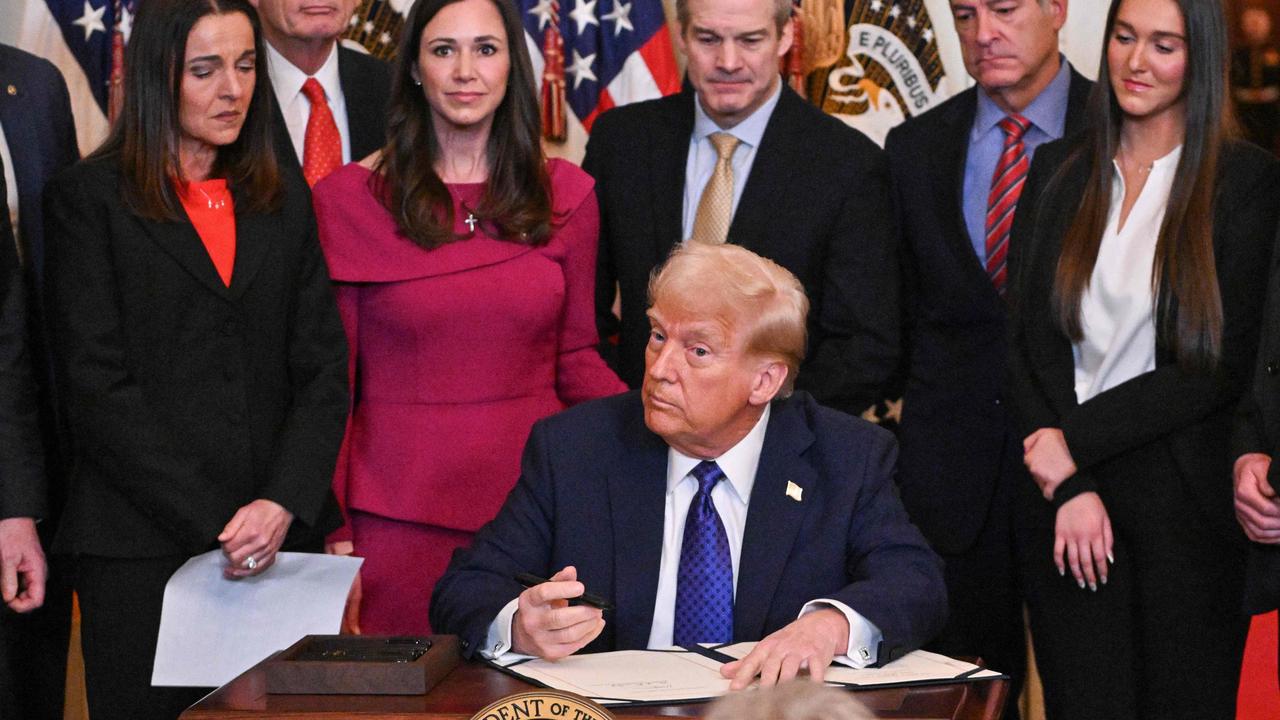2020 race: What’s Biden’s China policy? It looks a lot like Trump’s
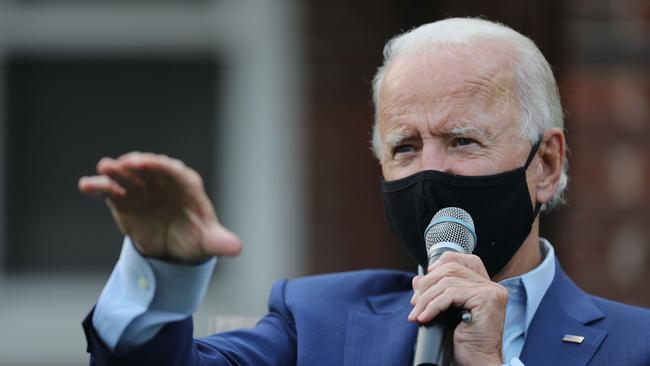
Whoever wins the presidential election, one thing is clear: The US has turned a corner in its relations with China and is likely to maintain a harder line.
In the past four years, President Trump, a longtime trade hawk, broke with decades of policy that broadly fostered closer ties between the two giants. Seeing China as a growing and often dishonest competitor, his administration has imposed tariffs on two-thirds of Chinese imports, moved to kerb Chinese investments in the U.S. and pressured allies to shun Chinese technology.
Advisers to Democratic presidential candidate Joe Biden say they share the Trump administration’s assessment that China is a disruptive competitor. This suggests that even with an administration change in January, friction between China and the US would remain high.
Continued tension between the world’s two largest economies portends big shifts for global businesses as they rethink supply chains and technological systems in an increasingly divided world. It also would push allies into choosing between the two poles.
“I think there is a broad recognition in the Democratic Party that Trump was largely accurate in diagnosing China’s predatory practices,” says Kurt Campbell, the top Asia official in the Obama State Department, now a senior adviser to the Biden campaign.
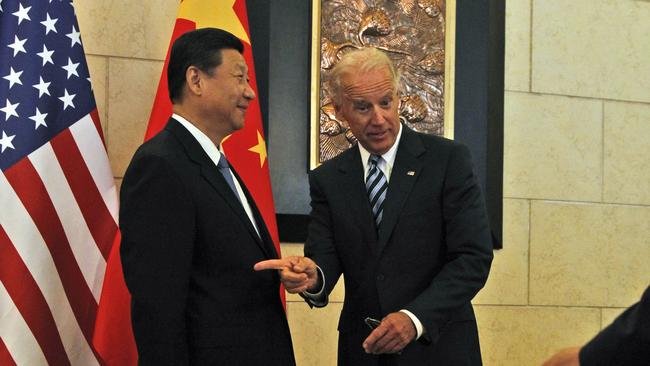
Biden aides say they would expand the American-government-backed campaign to compete in strategic hi-tech sectors such as artificial intelligence, quantum computing and the next-generation 5G wireless standard. These policies are meant to kerb Chinese economic power and influence, and reduce interdependence.
Trump’s tariffs also could remain under a President Biden. While Biden has criticised the Trump trade war as self-destructive, the campaign has refused to pledge removing the levies, saying only they would be re-evaluated. Democrats in Congress say they would pressure him to keep some tariffs in place to protect American workers.
But the two candidates are sending different signals on tactics and messaging. Biden advisers dismiss as unrealistic the rhetoric of some Trump backers about a new Cold War along the lines of the standoff between the US and Soviet Union. They note more than $US500bn ($685bn) in goods crossed the Pacific between the two countries last year, even during the trade war. Apple Inc, for instance, still relies heavily on Chinese producers for key components of its iPhones.
They also criticise the way that President Trump has gone about confronting China. “The application of his strategy to negotiate and contend with them has just been a mess,” said Campbell.
The Trump team argues that Biden represents the longtime establishment that encouraged China’s rise in the first place, including fostering a global free-trade system that many Americans now blame for hurting US factory jobs. In 2000, as one of the most influential politicians on international policy, Biden used his clout to back Bill Clinton’s deal letting China into the World Trade Organisation.
“Donald Trump has been fearless in … cleaning up the mess made by career politicians like Biden,” said Michigan Republican Rep. Jack Bergman during a Trump campaign call Wednesday on the escalating China debate. He said Biden, despite his new rhetoric, can’t break from the old mindset.
A more bare-knuckled China policy also would represent a notable shift for Biden and his foreign-policy team. Most of them served in the Obama administration, which some say in retrospect was too soft on China and too slow to recognise President Xi Jinping’s nationalist and authoritarian bent.
Biden says he would work more closely than Trump has to rally allies in a co-ordinated global campaign to pressure Beijing. He says Trump’s efforts would be far more effective if he worked with other countries, rather than simultaneously engaging in trade fights with Europe, Canada, Mexico, South Korea and Japan.
“We make up 25pc of the world’s economy but we poked our finger in the eyes of all of our allies out there,” Biden said recently. “The way China will respond is when we gather the rest of the world.” Biden also says he would place a higher emphasis than Trump on co-operating with China on global challenges he considers as vital to American interests as confronting Beijing.
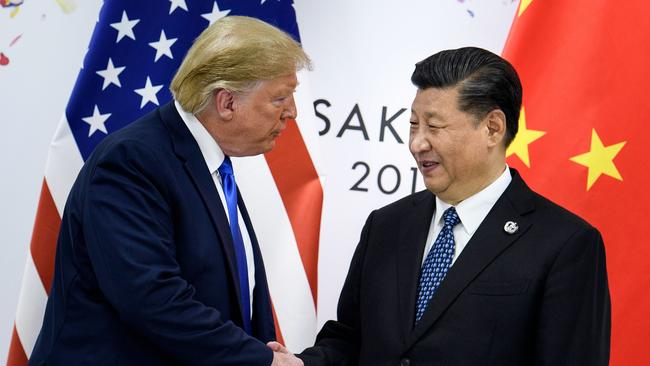
Where Trump has this year tried to isolate China over the pandemic — and the World Health Organisation over its ties to China — Biden would likely take a more global approach to containing the virus. Where Trump downplays concerns over climate change, Biden calls it “an existential threat.” Biden can’t address his climate agenda without help from China, the world’s largest carbon emitter.
That could complicate any attempts to strike a harder line against Beijing. “Should there be an easing up of competition if there’s a prospect of co-operation? What if China links those two?” asks Thomas Wright, a foreign policy fellow at the Brookings Institution.
The candidates’ contrasting diplomatic approaches reflect their clashing governing philosophies.
Biden spent much of his four decades in government working with world leaders to help shape the modern American-led global order. Trump’s late-life entry into politics was animated by his opposition to that order. He has at times questioned the value of longtime military and trade relations with Japan and South Korea, two American allies in China’s orbit.
For more than four decades, presidents from both parties, joined by executives of multinational corporations, sought to encourage China’s integration with the US and the world. They argued that would benefit the US and would lead to greater openness as Beijing followed global rules.
President Obama began his term seeking closer ties with Beijing and asked his vice president to develop a relationship with Xi. Biden boasts about having spent more time with the Chinese leader than any other foreign official, saying the two had 25 hours of private meals and logged 24,000 miles of travel together.
“It is in our self-interest that China continue to prosper,” Biden said during a 2011 visit to the country, a quote cited often by the Trump campaign. Biden supporters say Trump has made similar comments as president.
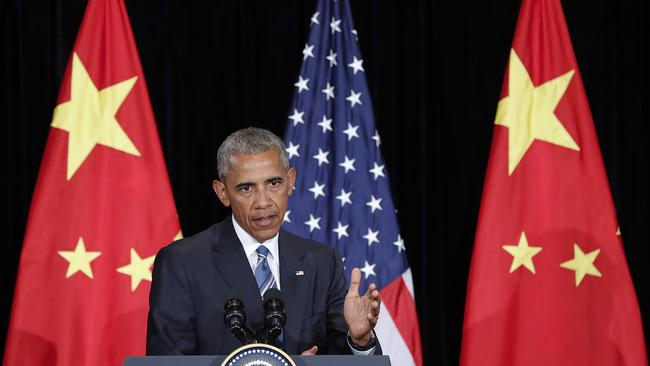
The Obama-Biden administration’s early views on China had been based on assumptions that Xi would continue the market-liberalising policies of his predecessors. As the Chinese leader consolidated power and reversed many of those measures, officials say, their views on China changed.
Biden aides say he observed first-hand the increasingly autocratic tendencies of Xi and other Chinese leaders. In a 2013 meeting, aides say, he told Xi the US would ignore Beijing’s attempt to expand its air defence zone, and would back allies doing the same. Some critics at the time said Biden should have publicly demanded China remove the zone, which he didn’t do on that trip.
Near the end of Obama’s term, the US began to crack down on cyber-theft, challenged Chinese territorial claims in the South China Sea and tightened scrutiny of Chinese investment in U.S. technology. Biden took the lead in criticising Chinese trade practices — though the administration’s actions consisted mainly of filing complaints with the World Trade Organisation in Geneva.
Trump accelerated the turn against China. He blasted the WTO as too slow and weak, and launched a trade war that imposed tariffs on $US370bn of Chinese imports. He has curbed Chinese tech companies including Huawei Technologies and ByteDance Ltd’s TikTok.
The pressure campaign expanded in the COVID-19 pandemic, which Trump blames on China. The US has closed the Chinese consulate in Houston for alleged economic espionage, ramped up military exercises in the South China Sea and imposed sanctions on senior Chinese officials.
In the six months since Biden effectively sealed the Democratic nomination, the incumbent and challenger have traded barbs on China. Each campaign has produced video ads featuring footage of the opposing candidate meeting with Xi. “Biden stands up for China,” the Trump ad says. “Trump rolled over for the Chinese,” counters the Biden spot.
The new Washington consensus no longer sees China on a path to adopting Western political and economic systems, but rather as an authoritarian rival. The hostility isn’t just over trade, but also stems from the crackdown in Hong Kong and repression of Uighur Muslims.
“Regardless of who wins, US policy toward China is going to be tougher over the next five years than the last five years,” says Richard Haass, a State Department official in the George W. Bush administration, now president of the Council on Foreign Relations. “China has changed, and U.S. thinking on China has changed.” Politicians have introduced more than 200 bills addressing China in the current congressional session, double the number in the previous one. In a summer Pew Research Center poll, 73pc of Americans said they had an unfavourable view of China, just 22pc a favourable one. In 2011, 51pc had a positive view, 36pc a negative one.
“The Chinese people ... feel very disappointed about what is happening in this country towards China, there’s a rising anger among the Chinese public,” Cui Tiankai, China’s ambassador to the US, told the annual Aspen Security Forum last month. He said leaders need to “not allow any miscalculation or misperceptions to hijack the relations.” One Biden critique of the Trump China policy is that it has inflicted economic damage on the US without triggering the Chinese economic reforms Trump has demanded. The fallout to the US has included a plunge in agricultural exports, as well as higher costs and supply disruptions for US companies dependent on Chinese imports.
A Moody’s Analytics study late last year estimated the China trade war cost the US economy about 300,000 jobs and shaved 0.3pc off US gross domestic product.
Trump officials say much of the lost sales will ultimately be made up with China purchase pledges made in a January trade agreement.
Biden advisers see China policy as just as much about rebuilding the US economy as containing China’s. “The debate should be about who’s going to make America more competitive,” says Ely Ratner, a Biden national security aide in the Obama administration now at the Center for a New American Security.
America policy makers have long tried to coax Beijing to move toward American-style capitalism. If elected, Biden’s plans to bolster growth include a nod to Chinese-style state intervention. He has an ambitious “Buy American” proposal that would earmark more federal funds for US companies.
Biden says his China policy would include a heavy emphasis on promoting democracy and human rights. He sees this as enabling the US to compete with Beijing globally on values, not just commerce, a traditional American foreign policy framework that Trump has downplayed.
That would also inform Biden’s technology policies. “As the vice president sees it, there’s a division in the world between techno-democracies and techno-autocracies,” said Antony Blinken, the campaign’s senior foreign-policy adviser. The democracies see technology as a tool for fostering greater freedom, the autocracies sell dictators enhanced surveillance and censorship tools.
A President Biden would have to manage divisions among Democrats over how to confront China. One battle within the party is over the military. One side wants big Pentagon budget cuts and the other hopes for more military support for Asian allies.
Another fight looms over trade. Many Democrats oppose new free-trade agreements. Others say those pacts are vital to bolstering alliances to counter China.
At the end of his term, Obama negotiated the 12-nation Trans Pacific Partnership with that goal in mind. At the time, Biden supported it. Trump ran against TPP in his 2016 campaign and pulled the US out. Now the Biden campaign says rejoining the bloc isn’t a top priority.
-
Wall Street Journal

